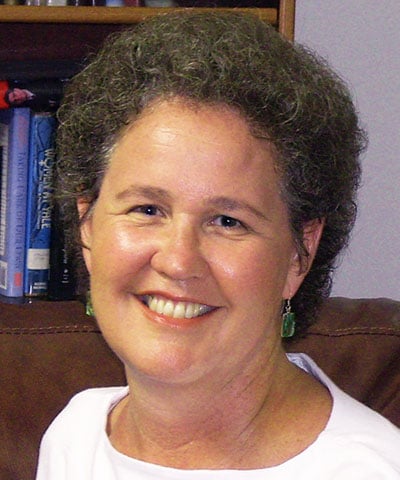Stanford Professor Emerita of Education Linda Darling-Hammond will succeed Stanford Professor Emeritus of Education Michael Kirst as the head of California’s Board of Education, Governor Gavin Newsom announced in Tuesday’s “State of the State” address.
As head of the Board, Darling-Hammond will lead the governing and policy-making body of the California Department of Education. The Board, comprised of 11 governor-appointed members, sets K-12 education policies involving instructional materials, assessment, accountability and academic standards defining the minimum knowledge and skills expected of students at each grade level.
Outgoing Board leader Kirst announced last spring that he would not seek a fifth term following then-governor Jerry Brown’s retirement from office. Kirst has spent 44 years in government, serving as Brown’s chief education advisor since Brown began his first term as governor in 1975.
Darling-Hammond will work with state superintendent Tony Thurmond to “confront” issues facing California’s public schools, Newsom said in his address. He noted California’s ranking of 41st in per-pupil public education spending among U.S. States, adjusted for differences in cost of living.
“Understaffed schools, overcrowded classrooms, pension pressures, the achievement gap and charter school growth — these stressors are showing up all over the state, right here in Sacramento, in Fresno, and Oakland,” he said.
“Something needs to change,” he added. “We need to have an honest conversation about how we fund our schools at a state and local level.”
Darling-Hammond founded the Stanford Center for Opportunity Policy in Education in 2008 “to foster research, policy, and practice to advance high quality, equitable education systems in the United States and internationally,” according to the Center’s website.
She also assisted in a redesign of the Stanford Teacher Education Program (STEP) while serving as a faculty sponsor of the program. STEP notes on its website that it seeks to support teachers “working with diverse learners to achieve high intellectual, academic, and social standards by creating equitable and successful schools and classrooms.”
In addition to her work at Stanford, Darling-Hammond serves as President and CEO of the Learning Policy Institute, a nonprofit and nonpartisan organization she founded “to advance evidence-based policies that support empowering and equitable learning for each and every child” through communication with policymakers and stakeholders at local, state and federal levels of government.
Darling-Hammond was named to a list of the nation’s ten most influential people affecting educational policy in 2006, and in 2008 she led President Barack Obama’s education policy transition team.
From 1994-2001, she was executive director of the National Commission on Teaching and America’s Future. The Commission’s 1996 report “What Matters Most: Teaching for America’s Future,” was named one of the most influential reports of the decade for U.S. education.
“Darling-Hammond is a champion for equity and possesses deep knowledge of teaching and learning,” California School Board Association (CSBA) director Vernon Billy told Palo Alto Online. “CSBA has worked extensively with Darling-Hammond to address a number of pressing issues, such as the teacher shortage, and looks forward to her leadership in this new role.”
Contact Holden Foreman at hs4man21 ‘at’ stanford.edu.
